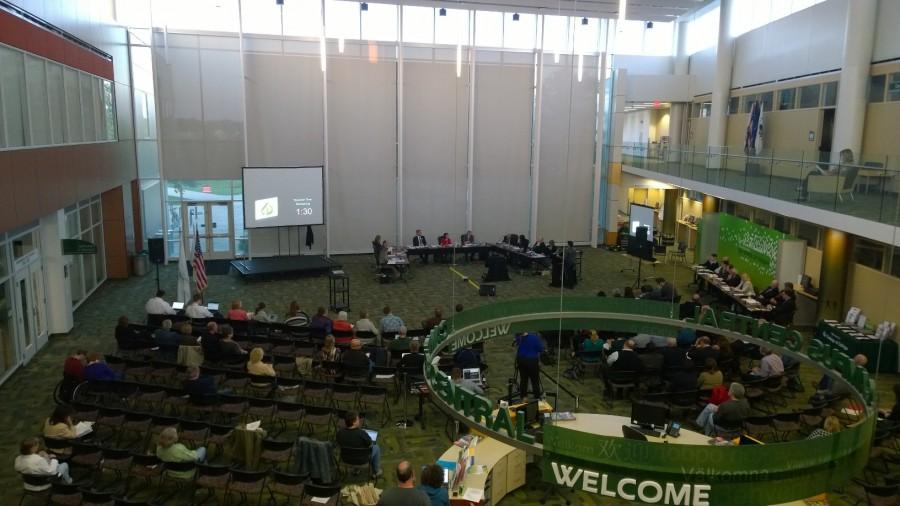Bored of the board’s closed sessions
Poorly timed sessions are less than ideal
Let it be known, the College of Dupage Board of Trustees is trying their best. After the issues the college faced last year, they’re doing an excellent job of addressing problems and coming to solutions. Their effort is no more evident than at the monthly board meetings. However, there is a bone to pick when it comes to how these meetings are conducted; specifically, the closed sessions that take place at the most inconvenient time possible.
If you’ve never been to a board meeting, first of all, you’re lucky. They’re long and somewhat boring; even the exciting news is revealed in a monotone voice that could put you to sleep. Aside from the occasional passive aggressive comment, they are a strict, professional event. However, they are extremely important in determining the future of COD, especially the matters discussed during the board’s closed session meetings. These take place about a half hour into each meeting and last around an hour. During this time, board members meet up in a private room to discuss the most pressing issues at hand, while the public who dedicated their time to attend the meeting are left to wait for the board’s verdict.
The problem with these closed sessions lies in their inconvenient timing. Many of those who show up for the meeting are not willing or able to wait an hour or so for the closed session to end, and therefore leave before they hear a decision. Others, such as any first-time board meeting attendees, are left confused by the abrupt interruption. These people clearly care about the future of our college and want answers from the board, but are not sure if it is worth it to wait for the results of the closed session. The matters discussed during closed sessions affect the entire rest of the meeting, but the awkward timing of them is not ideal for the people in attendance.
This issue would be redundant if there were truly no other way around the closed sessions, but there are obvious, simple solutions that could be implemented to please everyone. The closed session could be made the first thing on the board’s agenda for these meetings; that way, the public could arrive at the end of the closed session, and the results would be ready for them at the very beginning of the open board meeting. Or, if the board preferred, they could place the closed session at the very end of the board meetings. In this scenario, the public would leave before the closed sessions are over. Then, at the next board meeting, the first thing on the agenda would be the matters discussed and decided on at the last meeting. Also, no matter which method the board decides on, the closed sessions should have a strict time limit.
These ideas sound obvious, but for whatever reason, they are not applied to the current board meeting schedules. Occasionally, even public comments are postponed until after closed sessions. During these meetings, anyone who showed up to state their ideas or opinions to the board must wait until after matters (that may not even apply to them) are discussed privately. It’s a waste of time for many of these people, and as a community college, the community should not be treated with such disrespect.
It may seem like a petty problem, but that’s only because the solution is so clear. A simple change of schedule on the board’s agenda is all it would take to show a little more consideration and appreciation toward the dedicated citizens and faculty who invest their time in attending the meetings. After all, the meetings are no walk in the park to begin with; they ought to be made as least painful as possible.








